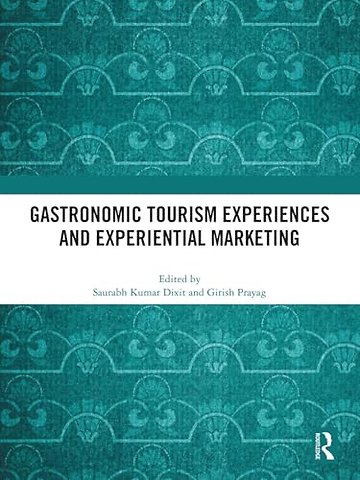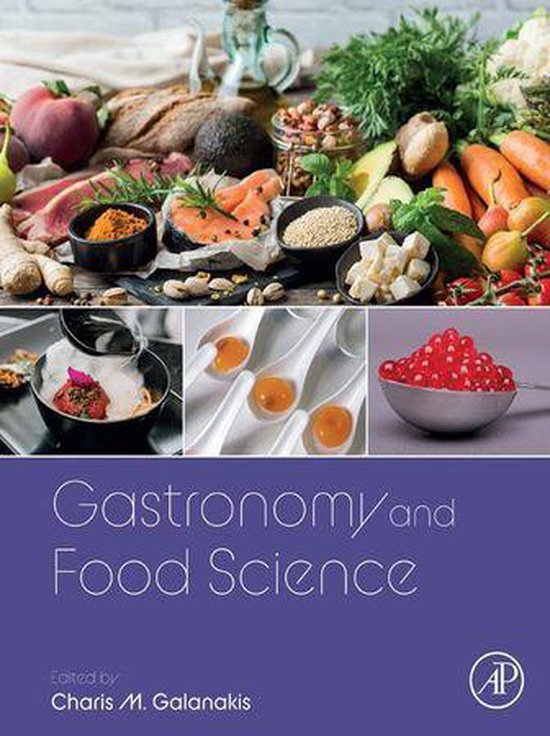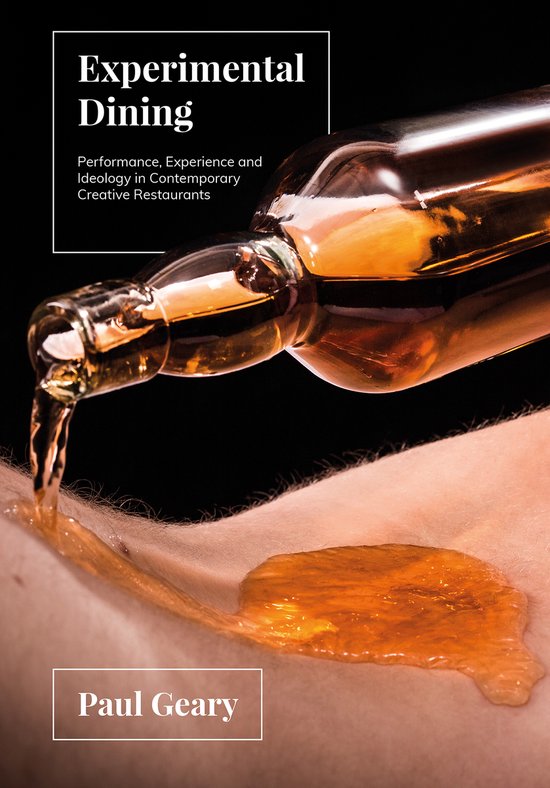

 Gastronomic tourism experiences and experiential marketing
by
This book examines and offers insights into original, transdisciplinary, conceptual, and methodological perspectives on gastronomic tourism experiences from both tourists and service providers' perspectives. It is essential read for undergraduate and postgraduate students of Tourism, Hospitality, Management, Consumer Behaviour.
Gastronomic tourism experiences and experiential marketing
by
This book examines and offers insights into original, transdisciplinary, conceptual, and methodological perspectives on gastronomic tourism experiences from both tourists and service providers' perspectives. It is essential read for undergraduate and postgraduate students of Tourism, Hospitality, Management, Consumer Behaviour.
 Gastronomy and food science
by
Gastronomy and Food Science fills the transfer knowledge gap between academia and industry by covering the interrelation of gastronomy and food and culinary science in one integral reference. Coverage of the holistic cuisine, culinary textures with food ingredients, the application of new technologies and gastronomy in shaping a healthy diet, and the recycling of culinary by-products using new is also covered in this important reference. Written for food scientists and technologists, food chemists, and nutritionists, researchers, academics, and professionals working in culinary science, culinary professionals and other food industry personnel, this book is sure to be a welcomed reference.
Gastronomy and food science
by
Gastronomy and Food Science fills the transfer knowledge gap between academia and industry by covering the interrelation of gastronomy and food and culinary science in one integral reference. Coverage of the holistic cuisine, culinary textures with food ingredients, the application of new technologies and gastronomy in shaping a healthy diet, and the recycling of culinary by-products using new is also covered in this important reference. Written for food scientists and technologists, food chemists, and nutritionists, researchers, academics, and professionals working in culinary science, culinary professionals and other food industry personnel, this book is sure to be a welcomed reference.
 Cook, taste, learn: how the evolution of science transformed the art of cooking
Cooking food is one of the activities that makes humanity unique. It's not just about what tastes good: advances in cooking technology have been a constant part of our progress, from the ability to control fire to the emergence of agriculture to modern science's understanding of what happens at a molecular level when we apply heat to food. Mastering new ways of feeding ourselves has resulted in leaps in longevity and explosions in population--and the potential of cooking science is still largely untapped. In Cook, Taste, Learn, the food scientist and best-selling author Guy Crosby offers a lively tour of the history and science behind the art of cooking, with a focus on achieving a healthy daily diet. He traces the evolution of cooking from its earliest origins, recounting the innovations that have unraveled the mysteries of health and taste. Crosby explains why both home cooks and professional chefs should learn how to apply cooking science, arguing that we can easily improve the nutritional quality and gastronomic delight of everyday eating. Science-driven changes in the way we cook can help reduce the risk of developing chronic diseases and enhance our quality of life. The book features accessible explanations of complex topics as well as a selection of recipes that illustrate scientific principles. Cook, Taste, Learn reveals the possibilities for transforming cooking from a craft into the perfect blend of art and science.
Cook, taste, learn: how the evolution of science transformed the art of cooking
Cooking food is one of the activities that makes humanity unique. It's not just about what tastes good: advances in cooking technology have been a constant part of our progress, from the ability to control fire to the emergence of agriculture to modern science's understanding of what happens at a molecular level when we apply heat to food. Mastering new ways of feeding ourselves has resulted in leaps in longevity and explosions in population--and the potential of cooking science is still largely untapped. In Cook, Taste, Learn, the food scientist and best-selling author Guy Crosby offers a lively tour of the history and science behind the art of cooking, with a focus on achieving a healthy daily diet. He traces the evolution of cooking from its earliest origins, recounting the innovations that have unraveled the mysteries of health and taste. Crosby explains why both home cooks and professional chefs should learn how to apply cooking science, arguing that we can easily improve the nutritional quality and gastronomic delight of everyday eating. Science-driven changes in the way we cook can help reduce the risk of developing chronic diseases and enhance our quality of life. The book features accessible explanations of complex topics as well as a selection of recipes that illustrate scientific principles. Cook, Taste, Learn reveals the possibilities for transforming cooking from a craft into the perfect blend of art and science.
 The Virtues of the Table
by
The Virtues of the Table
by

 Experimental dining: performance, experience and ideology in contemporary creative restaurants
by
Considers four of the world’s leading creative restaurants as experimental performance practice. Using ideas from performance studies, cultural studies, philosophy and economics, the book argues that technoemotional restaurants can be understood as both a commodified experience and an artistic and aesthetic practice
Experimental dining: performance, experience and ideology in contemporary creative restaurants
by
Considers four of the world’s leading creative restaurants as experimental performance practice. Using ideas from performance studies, cultural studies, philosophy and economics, the book argues that technoemotional restaurants can be understood as both a commodified experience and an artistic and aesthetic practice
 Food: The history of taste
by
Food: The history of taste
by
 Food for thought
by
This work brings together voices from a wide range of disciplines, providing a fascinating feast of scholarly perspectives on food and eating practices, contemporary and historic, local and global.
Food for thought
by
This work brings together voices from a wide range of disciplines, providing a fascinating feast of scholarly perspectives on food and eating practices, contemporary and historic, local and global.
 We Are What We Ate: A Social History of Food
We Are What We Ate: A Social History of Food